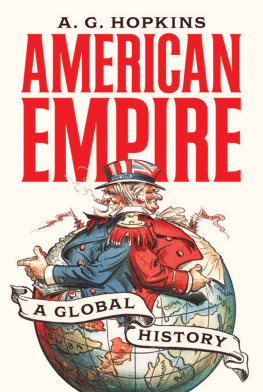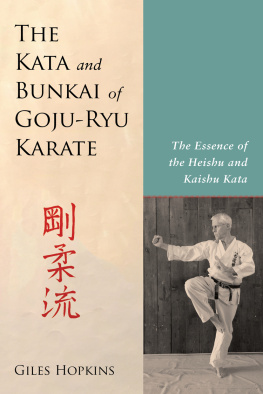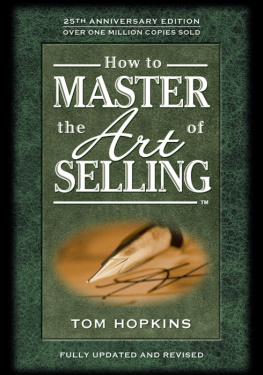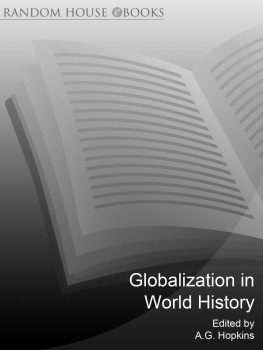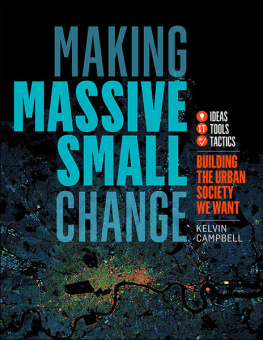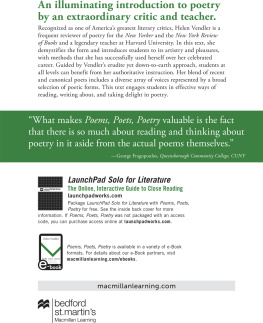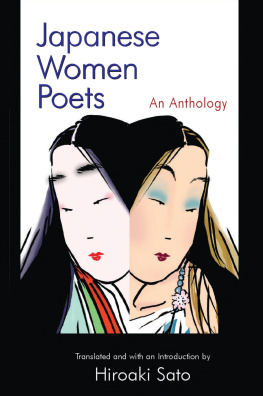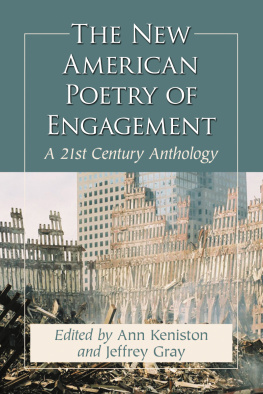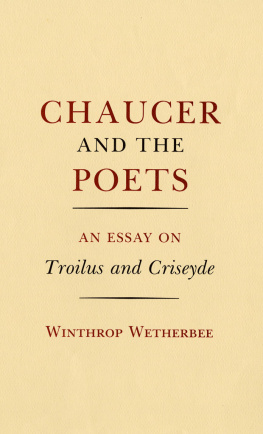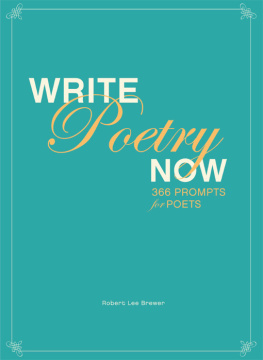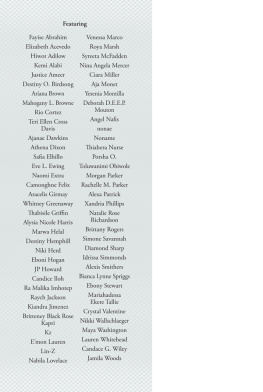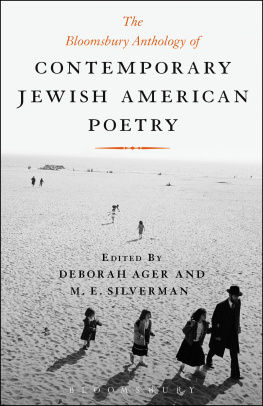Thanks are due to the following for permission to reproduce material in this book: Baylor University for Brownings epigram on Swinburne from Robert Secor, Swinburne at his lyre; a new epigram by Browning, Studiesin Browning and His Circle, (1974) 2, 2, Collins Publishers for Edmund Blundens The Death Mask of John Clare from Poems of ManyYears (1957); the executors and estate of C.Day Lewis and The Hogarth Press and Jonathan Cape for C.Day Lewiss Birthday Poem for Thomas Hardy from Complete Poems (1954); Faber & Faber Ltd for W.H.Audens New Year Letter from Collected Poems and In Memory of W.B.Yeats from The English Auden, for quotations from T.S.Eliots The Metaphysical Poets in Selected Essays and from Ted Hughess Poetry in the Making and his Note in A Choice of Shakespeares Verse; London Magazine for the interview between Philip Larkin and John Haffenden from London Magazine (1980) n.s. 20; Longman for Roger Lonsdales text of William Collinss Ode on the Popular Superstitions of the Highlands from the Longman Annotated English Poets series; Macmillan Publishing Company, New York for Thomas Hardys A Singer Asleep (Algernon Charles Swinburne, 18371909) and George Meredith (18281909)both from The Complete Poems of Thomas Hardy, edited by James Gibson (New York, Macmillan, 1978)for W.B.Yeatss The Symbolism of Poetry, The Philosophy of Shelleys Poetry, The Tragic Theatre, Edmund Spenser, William Blake and the Imagination, and The Happiest of Poetsall from W.B.Yeats, Essays and Introductions (New York, Macmillan, 1961) and Autobiography (New York, Macmillan, 1970); Professor Eric Robinson and Curtis Brown for John Clares Shadows of Taste and Lines on Cowper from John Clare (Oxford Authors) and his To the Rural Muse from The Later Poems of John Clare (Oxford English Texts) and To the Memory of Keats from The Early Poems of John Clare (Oxford English Texts); Stanley Thornes (Publishers) Ltd for Ted Hughess Introduction to HereToday.
PREFACE
This volume contains a collection of poetic responses by the English poets to one anothers work. It does not attempt to represent the full range of remarks which English poets have made about their fellow practitioners, but, rather, concentrates on those moments when, in reflecting on their art in general, on their own work, or on the work of one or more of their peers, they have been prompted to exhibit some features of the very activity which they are describing or commending. The majority of the items included are full-dress poems, or extracts from larger poems, but I have included poets prose comments in those instances where the writing seems, in whole or in part, to be aspiring to the condition of poetrywhere the writer is deploying rhythmical and metaphorical effects, verbal colouring, heightened diction, or impassioned rhetoric to a degree that one would not normally expect to find in discursive prose. In the Introduction, I attempt to suggest the particular interest of poets specifically poetic responses to their art and to their fellow artists.
Any anthologist (particularly one faced with a body of material as large as that potentially eligible for the present volume) must establish clear and reasoned principles of selection if the end-product is to seem a coherent book, rather than merely an arbitrarily assembled collection of snippets. But an anthologist must also recognise that, however unified he can make his collection, however much each of his extracts is freshly illuminated by the new environment in which it finds itself, an anthology can never be more than a provisional holding-together of a selective body of material, each item of which is temporarily on loan from a number of other contexts in which it has slightly different kinds of significance.
Many items in this anthology are excerpted from larger worksthe most immediate and important of all the contexts in which they live. Beyond that, they form parts of their authors total oeuvres. But they are also parts of other larger wholes. The English poets responses to one anothers work can be only very partially represented by collecting their explicit statements. To gain a complete sense of what the English poets meant to one another, one would have to take stock of the numerous and diverse ways in which the work of one poet is present in others work: in translation, adaptation, imitation, parody, allusion, echomodes which often reveal poets reactions to their peers more fully and intimately than their explicit comments.
English poets have, moreover, been sometimes more deeply inspired and influenced by foreign poets than by their own compatriots. And the work of some poets shows that they were deeply affected by peers on whom they left either little or no direct commentary, or commentary which gives a very misleading or imperfect sense of the nature of their interest. A comprehensive presentation of the subject covered by the present volume could therefore only be achieved by reprinting large sectionsperhaps, in some cases, virtually the wholeof the poets complete works, together with large sections of the work of those poets, English and foreign, to whom each of their works was most intimately related. In restricting myself to the more manageable topic of English poets explicit commentary on their English peers, I am fully conscious that I am presenting the tips of numerous icebergs whose full shape might not always be adequately suggested by what appears above surface level.
Though the main body of the anthology presents a chronological collection of English poets reflections on particular peers, a preliminary section has been included which contains a selection of the poets more general reflections on their art. This seemed desirable for two reasons. First, a number of those general passages contain within them important passing (and therefore not easily excerptible) mentions of specific poets. Second, many of the poets particular comments on their fellow practitioners take on a greater significance when seen in the light of the more general claims which the community of poets down the centuries has made for its art.


